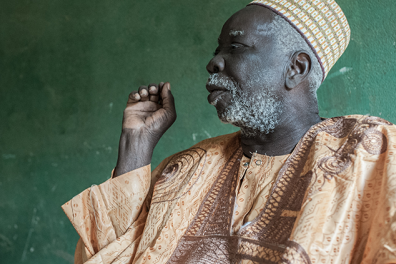14th ISOLA symposium "Humans and non-humans in the arts of speech in Africa. Environmental narrativities and poetics at the dawn of the climate crisis", July 5-8

Colloquium organized by the research laboratories Langues et Civilisations à Tradition Orale - LACITO (Inalco-Sorbonne Nouvelle Paris 3-CNRS); Langues et Cultures du Nord de l'Afrique et Diasporas - LACNAD (Inalco); Langage, Langues et Cultures d'Afrique - LLACAN (Inalco-EPHE-CNRS); Centre de recherche en Ethnomusicologie - CREM-LESC (Université Paris Nanterre), Éco-Anthropologie/Musée de l'Homme - EA (MNHN-Université Paris Cité-CNRS).
From Wednesday July 5 to Saturday July 8, 2023 - Auditorium, foyer, gallery and lecture rooms
Inalco, PLC - 65, rue des Grands Moulins - 75013 Paris
Contacts: Daniela Merolla: View e-mail and Cécile Leguy: View e-mail
Access arrangements:
Entrance by paid registration
For students and staff of Inalco and partner institutions, access to the conferences is free.
For more information on registration fees, membership, transport, accommodation and other colloquium arrangements, please visit the colloquium website.
The colloquium will begin on Wednesday, July 5 at 1pm and will end on Friday, July 7 with the closing dinner.
On Saturday, July 8, there will be a guided tour of Paris with Le Paris Noir.
Detailed program.
Argumentary
The latest reports on the consequences of global warming by the Intergovernmental Panel on Climate Change (IPCC) have once again brought home the urgent need to change industrial societies' relationship with the living. Published at the same time as the spread of the Covid-19 pandemic, these reports[1] have reinforced the long-standing calls for responsibility addressed to political and economic powers by researchers and environmental activists alike. The slogan "there is no Planet B" draws attention to extreme climate change and the risks to the survival of humans, animals and the environment. Scientific data implies the urgency of action to steer contemporary economies towards eco-climatic and social reconversion, including a drastic reduction in the exploitation of the world and its people, while respecting ecosystems. Disputes over the relationship between economic, environmental and social interests are on the increase, and those responsible for ecological disasters are being called to account. We seem to be at a turning point, with Shell being condemned in May 2021 for pollution in Nigeria, and the French state being condemned in February 2021 for its inactivity on climate change. To use an animal metaphor, we must remember that "a wolf is still a wolf" and that the conversion to sustainability of industries and states may prove ephemeral and not very incisive, all the more so in a situation of war such as the one that broke out in Eastern Europe in 2022.
However, the relationship to the world that can be described as "colonialist", due to men thinking themselves "masters and possessors of nature" in Descartes' words, leading to the depletion of resources perceived as unlimited, is neither shared by all nor of all times. The songs of the lamal ritual among the Samburu of Kenya[2] and the well-known West African tale of the over-skilled hunter, for example, orient thought towards a less predatory relationship with living beings and geophysical forces/objects. How can such oral productions make sense in the context of current environmental concerns? Should we rethink the often allegorical analyses of the past (Iheka 2018) on the geo/zoo/etho/biological elements of oral literatures? What inspiration can oral productions provide for the renewal of African studies on the relationship between the art of speech and the natural environment?
Since the 1990s, studies in ecocriticism and then the ecopoetics movement, highlighting literary aesthetics linked to discourses on the living, have focused on environmental issues. These new literary approaches pay increasing attention to narratives that challenge overly anthropocentric thinking and deconstruct the nature/culture relationship and notions of otherness and "wild" nature, too firmly posited, particularly by structuralist approaches (e.g. Barry 2009, Descola 2011, Garnier 2022, Ijeka 2018, Iovino and Oppermann 2012, Schoentjes 2015, Posthumus 2013). Still very much rooted in written productions, ecopoetics is beginning to open up to what orality represents in the lived experience of environments: the sounds, colors and movements, the sensitive attention paid to places and relationships, and the knowledge constructed there (Bourlet, Lorin and Morand 2020)[3].
[1] Available at The Intergovernmental Panel on Climate Change (IPCC).
[2] Wachira, James Maina. 2021. Non*human Matter[ing]s: NarRating Conservation in Selected Kenyan Eco-Texts. Thesis under the supervision of Susan Arndt. University of Bayreuth.
[3] Based on the model of "acoustemology", knowledge of and through sound, developed by Steven Feld (1996).
Organizing committee:
Sandra Bornand, research fellow (LLACAN, CNRS-INALCO)
Hermelind Le Doeuff, PhD student (LACITO, CNRS-Sorbonne Nouvelle)
Philippe Glâtre, PhD student (LACITO, CNRS-Sorbonne Nouvelle)
Cécile Leguy, professor (LACITO, CNRS-Sorbonne Nouvelle)
Daniela Merolla, professor (LACNAD, INALCO)
Katell Morand, lecturer (Université Paris Nanterre, CREM-LESC)
Responsible for the symposium for ISOLA : Akintunde Akinyemi, University of Florida, Gainesville (USA), Vice-President.